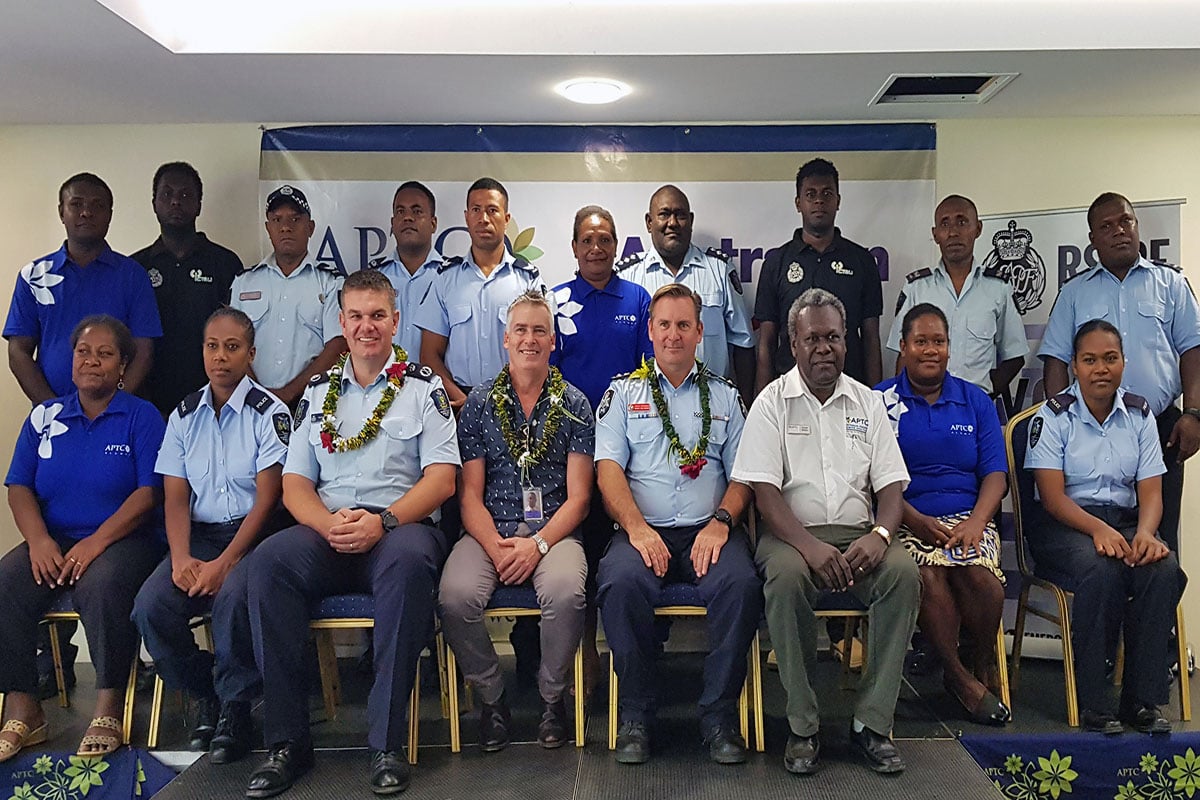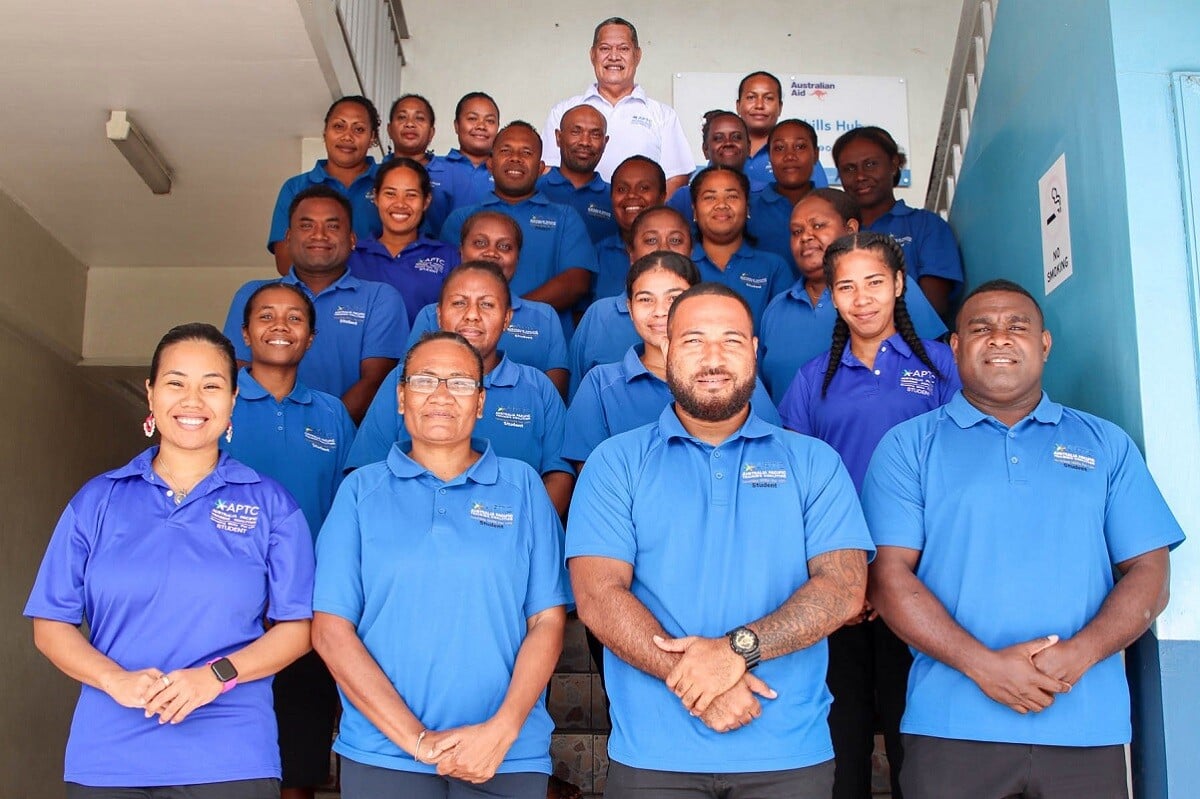Twelve Solomon Islanders recently underwent a two-week introductory session on International Skills Training (IST) with the Australia Pacific Training Coalition (APTC) in Honiara to enhance their skills in training and emergency management.
The training, organised by APTC in collaboration with the Pacific Islands Emergency Management Alliance (PIEMA), was aimed at improving the competency-based training skills for APTC staff and leaders from various disaster management stakeholders in Honiara.
The Australian and New Zealand governments support the PIEMA project under the Pacific Community (SPC) as part of efforts to strengthen coordination when preparing for, responding to and recovering from disasters in Pacific Island countries.
The IST training aimed to improve the competency-based training skills of the participants from the Ministry of Environment, Climate Change, Disaster Management and Meteorology, Royal Solomon Islands Police Force (RSIPF), Adventist Development Relief Agency (ADRA) Solomon Islands and staff from APTC in Honiara, Malaita and Western Province.
Country Director for the Solomon Islands and Kiribati, Abigail Chang, said the content of the IST training package is important for locals to meet expectations of providing quality skills, particularly in training and emergency management.
Vocational Training Manager for the Solomon Islands and Kiribati, Glyn Milhench, added that the IST training is important for the professional development of the participants to replicate in their respective organisations.
“Quality skills, quality products, quality of life. Good vocational trainers enable good vocational training. It all comes down to improving Solomon Islanders’ way of life,” Mr Milhench said.
APTC National Trainer, Raj Kapoor, who delivered the training remotely, said the IST knowledge and skills will benefit the participants in developing their capabilities in designing, developing and delivering competency-based training within their organisations.
“Appropriately skilled trainers will have the confidence and capacity to make reasoned judgments when training, including adapting teaching materials and learning techniques to meet industry and learner needs. Competent assessors will help to meet the needs of the industry and enterprises through assessing learners’ skills and knowledge for the workplace,” Mr Kapoor said.
He said the two-week training was a positive learning experience for the 12 participants, with their sessions adapted to meet the leaners’ needs.
Human Resource Coordinator for ADRA Solomon Islands, Elizabeth Tangisi, said she learned useful skills and knowledge in time management and new ideas to conduct trainings and workshops.
She plans to demonstrate and share what she has learned with her colleagues.
“As a Human Resource Coordinator, when I conduct training to our volunteers and staff, I will consider training sizes and creativities to engage learners. I also need to take into consideration the skills and experiences of learners and what expectations they will have in their learning,” Ms Tangisi said.
The virtual training was delivered in two blocks, during July and September 2020.
The IST is an initiative of the Australia Government aimed at addressing critical competency gaps, supporting skills needs in the global workforce, and providing Australian registered training organisations (RTOs) the opportunity to support overseas stakeholders to meet their diverse skills needs.
You May Also Like
These Related Stories
Solomon Islanders gain skills through APTC

Solomon Islands Police officers qualify to be skilled trainers
